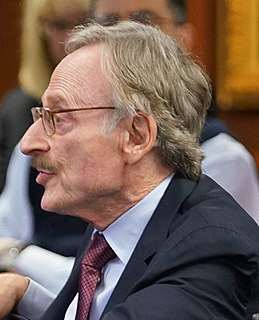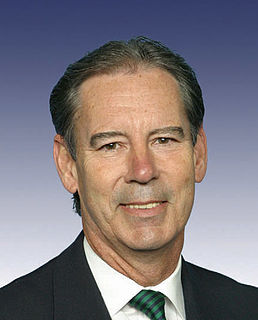A Quote by Peter L. Bernstein
As the worldly philosophers of the past affirmed, the goal of economics is to improve the way society functions. In The New Financial Order, Robert Shiller joins this proud tradition by directing his brilliant economic skills toward the creation of financial institutions designed to reduce the risks an unknown future visits on most members of our society and others. Shiller's imaginative and compelling analysis will appeal to all readers who share his passion for initiating not only a richer, but a better, century.
Quote Topics
Analysis
Appeal
Better
Brilliant
Century
Compelling
Creation
Designed
Directing
Economic
Economics
Financial
Financial Institutions
Functions
Future
Goal
His
Imaginative
Improve
Institutions
Members
Most
New
Only
Order
Others
Our
Our Society
Passion
Past
Proud
Readers
Reduce
Richer
Risks
Robert
Share
Skills
Society
Toward
Tradition
Unknown
Unknown Future
Visits
Way
Will
Worldly
Related Quotes
Anyone interested in the past, present, or future of banking and financial crises should read The Bankers' New Clothes. Admati and Hellwig provide a forceful and accessible analysis of the recent financial crisis and offer proposals to prevent future financial failures. While controversial, these proposals--whether you agree or disagree with them--will force you to think through the problems and solutions.
Something is not yet right and ripe in our human society at the beginning of the 21st century and third millennium: missing is an unprecedented vision, boldness and courage to fashion a new, promising, better future. Our beliefs, society, ways of life, institutions and future goals must be reviewed and reappraised fundamentally from scratch.
Everyone carries a part of society on his shoulders; no one is relieved of his share of responsibility by others. And no one can find a safe way out for himself if society is sweeping toward destruction. Therefore, everyone, in his own interests, must thrust himself vigorously into the intellectual battle. None can stand aside with unconcern; the interest of everyone hangs on the result. Whether he chooses or not, every man is drawn into the great historical struggle, the decisive battle into which our epoch has plunged us.
In the immediate postwar era, financial crises in advanced countries were rare events, and before 1970 did not happen at all. Since then they have occurred more often, and 2008 was the most damaging of them all to date. If we have moved back to a regime of regular financial crises - like the one we had from the 1870s to the 1930s - then our economic future will be very different from our recent past.
For all his understanding of worldly concerns, when it came to fathoming the deeper meaning of his own furious activity, Sir Bob displayed the sort of laziness for which he himself had no patience in others. He appeared to have only a passing interest in the overall purpose of his financial accumulation.
One of the most intensely unlikeable figures of the twentieth century, fanatical anti-Semite, enemy of labour unions and proud recipient of medals from Nazi Germany, where Hitler held him in veneration, Henry Ford was also an employer who paid his workers more than his competitors, an innovator who pioneered the assembly line and a visionary whose part in the creation of the twentieth century was so great that Aldous Huxley, in his Brave New World, prefigured a society whose calendar was divided into BF and AF-Before Ford and After Ford.
Dying well is part of living well and one day our society will surely recognize that. But I suppose we'll only know that we've reached that promised land on the day that the President of the Voluntary Euthanasia Society begins his address to the Annual General Meeting with the words: 'Tremendous news for the society. It's been our most successful year ever. So successful, indeed, that we now have no members at all.
The trouble is that the risks that are being hedged very well by new financial securities are financial risks. And it appears to me that the real things you want to hedge are real risks, for example, risks in innovation. The fact is that you'd like companies to be able to take bigger chances. Presumably one obstacle to successful R&D, particularly when the costs are large, are the risks involved.
Society is made up of individuals. The thoughts and actions of each individual influence the culture of that society. Instead of waiting for others to improve, we should try to improve ourselves. Once our attitude has changed, we will be able to perceive goodness throughout world. If there is a positive change in us, it will also be reflected in others. It is only what we give that we can hope to get back.




































